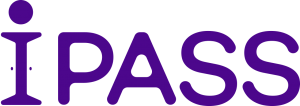
iPass OCR in Arabic vs. Digital Archiving System: Weighing the Pros and Cons
In today’s rapidly evolving digital world, businesses and organizations in the Middle East and North Africa (MENA) region are looking for efficient ways to manage and access their ever-growing data. The need for reliable Arabic language solutions has led to the emergence of technologies like iPass OCR in Arabic and digital archiving systems. This blog post will explore the pros and cons of both approaches to help you make an informed decision on the best solution for your organization’s needs.
iPass OCR in Arabic
Pros:
Accuracy: iPass OCR in Arabic is designed specifically to handle the unique complexities of the Arabic language. Its advanced algorithms and deep learning techniques ensure high accuracy in recognizing and extracting text from documents and images.
Time and cost savings: By automating data extraction and reducing manual data entry, iPass OCR saves time and resources that can be allocated to more critical tasks, improving overall efficiency.
Enhanced search capabilities: With iPass OCR, text from scanned documents becomes searchable, allowing for easy retrieval of specific information and faster decision-making.
Flexibility: iPass OCR can be used for various applications and industries, including government, banking, healthcare, education, and legal sectors.
Cons:
Limitations with handwriting: Although iPass OCR in Arabic is effective at recognizing printed text, its performance with handwritten text can vary depending on the clarity and style of writing.
Initial investment: Implementing iPass OCR may require an initial investment in software and hardware infrastructure, which could be a concern for smaller organizations with limited budgets.
Digital Archiving System
Pros:
Long-term preservation: Digital archiving systems store documents in a secure and organized manner, ensuring their long-term preservation and protection from physical damage or deterioration.
Easy access and retrieval: Digital archives offer quick and easy access to documents, streamlining workflows and improving productivity.
Scalability: As your organization’s data grows, digital archiving systems can be scaled to accommodate the increasing volume of information.
Compliance and security: Digital archiving systems adhere to data protection regulations and provide enhanced security measures to protect sensitive information from unauthorized access.
Cons:
Dependency on technology: Digital archiving systems rely on technology, which may be prone to failures or obsolescence over time. Organizations must continually invest in maintaining and updating their systems to keep them functional and secure.
Limited search capabilities: If documents are stored as image files without OCR, the text within these documents is not searchable. This limitation can make it challenging to find specific information within the archive.
Cost and resource-intensive: Implementing and maintaining a digital archiving system can be expensive, particularly for smaller organizations with limited budgets.
Conclusion
Both iPass OCR in Arabic and digital archiving systems have their pros and cons. Ultimately, the best solution for your organization depends on your specific needs and resources. iPass OCR is an excellent choice if your primary focus is on accurately recognizing and extracting Arabic text from various documents. On the other hand, if long-term preservation and secure storage of digital assets are your primary concerns, a digital archiving system may be the better option.
In many cases, a combination of both technologies can provide the most comprehensive solution. Implementing iPass OCR in Arabic for text recognition and extraction, followed by storing the digitized documents in a digital archiving system, can offer the best of both worlds—accurate data extraction and secure, long-term storage.
